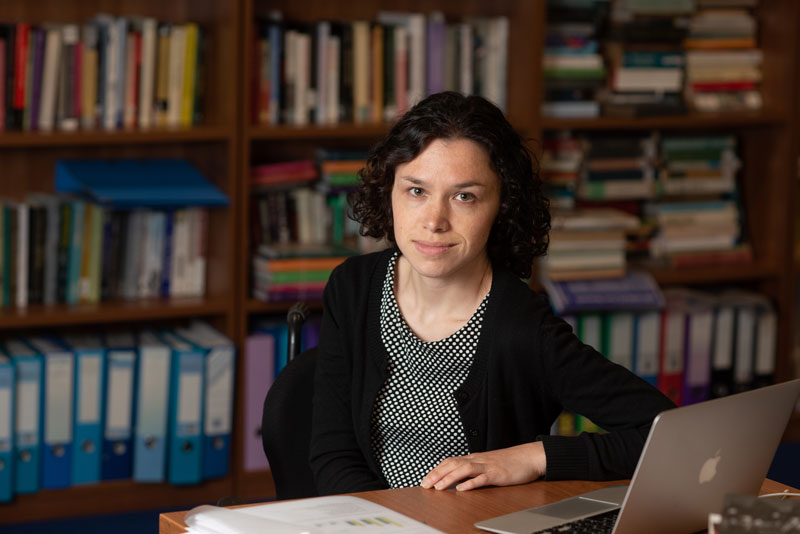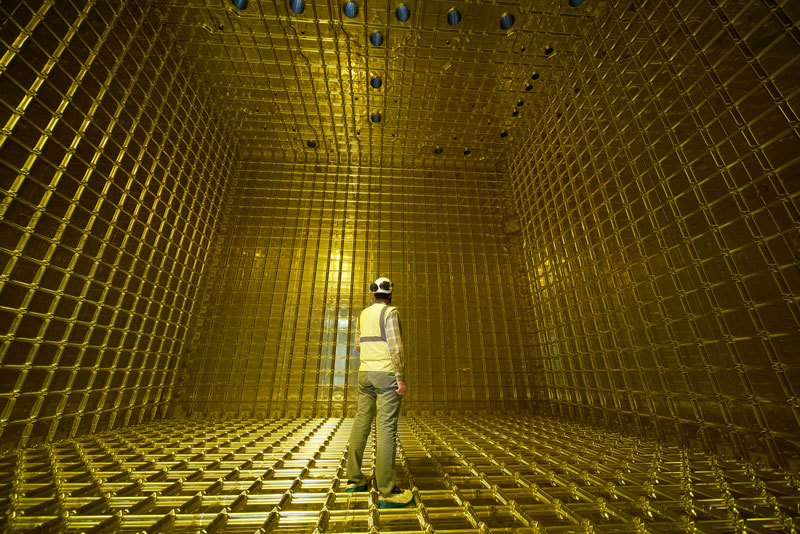Securing the future of learning at Oxford
Tutorial teaching is fundamental to the University’s position as a centre of academic excellence.
The tutorial system lies at the heart of an Oxford education, providing students with a rare level of personalised attention from world-leading academics. In the face of extensive cuts to government funding, the University established the Teaching Fund in 2010 to help protect this special approach to learning.
With money derived from Oxford University Press, the Teaching Fund committed to matching gifts made towards the endowment of 75 core posts across the academic divisions – an ambitious goal that was met in just three years, thanks to donor generosity.
Siân Pooley, Associate Professor of History and Angus Macintyre Fellow, Magdalen College
Dr Siân Pooley is passionate about better understanding the connections between everyday life, intimate relationships and big social change. ‘In order to explain why society works as it does and why important historical events have happened, we shouldn’t just be thinking about legislation, prime ministers and big institutions,’ she says. ‘Ordinary experiences also change who we are, how we think and what we do.’
Dr Pooley’s research focuses on the way in which such experiences influenced both change and continuity in 19th- and 20th-century Britain. How, for example, did fatherhood change the way a man worked as a politician or philanthropist? To what extent did regional economies shape the opportunities that were available to adults, and therefore the care they gave to their children?
 Dr Siân Pooley in her office at Magdalen College. Photo by John Cairns
Dr Siân Pooley in her office at Magdalen College. Photo by John Cairns
‘One thing I’ve been particularly struck by is the extent to which local activism helped to form the emerging welfare state,’ she explains. ‘We tend to assume that those projects of changing society were imposed from the top down, when in fact it was the demands that working-class adults placed on the state that created the most pioneering projects of reform.’
Having the opportunity to spend time discussing the subject she loves with students is, Dr Pooley says, one of the best bits of the job: ‘It totally changes how you think about your own work because you have to put it in a bigger context. That constant intellectual challenge of helping students to see how different readings fit together, and work out how they can make a powerful argument from those readings, is really enriching as an experience.’
As well as benefiting the tutors, Dr Pooley is keen to stress the considerable impact that the tutorial system has on those learning through it. ‘It gives students the freedom to think about things that are important to them,’ she says. ‘That freedom enables them to develop intellectual independence and to create what is truly original research themselves. It’s lovely to see that journey.’
Alfons Weber, Professor of Physics and Rokos–Clarendon Fellow, Pembroke College
Before the Rokos–Clarendon Fellowship was established, physics had not been taught at Pembroke College for more than ten years. ‘The endowment of the post meant that I could restart physics as a subject here,’ says particle physicist Professor Alfons Weber. ‘I started with four students, later six, now I have eight, and we recently started teaching Physics and Philosophy too.’
During tutorials, Professor Weber’s students have the opportunity to engage with, learn from and be challenged by an academic at the very forefront of his field. ‘I’m particularly interested in neutrinos,’ he explains. ‘They’re very strange particles; a trillion go through your fingernail every second and yet we don’t know very much about them. They might be the reason why there is matter in the Universe… why we exist at all.’
Learning more about these mysterious particles, particularly the unique mechanism that allows them to transform from one type to another, is the focus of Professor Weber’s research. In 2014, this focus led him to become UK Principal Investigator of one of the most advanced neutrino experiments in the world: the Deep Underground Neutrino Experiment (DUNE).
 Inside the cryostat of the ProtoDUNE detector, a 1/20 scale prototype of one of the four modules that will comprise DUNE’s far detector. Photo by CERN
Inside the cryostat of the ProtoDUNE detector, a 1/20 scale prototype of one of the four modules that will comprise DUNE’s far detector. Photo by CERN
Comprised of two state-of-the-art neutrino detectors and the world’s most particle-packed neutrino beam, DUNE will enable scientists to search for new subatomic phenomena. If all runs to plan, the experiment – which is based in the United States – will not only shed light on the origin of matter, but could allow us to peer inside a newly-formed neutron star, and potentially even witness the birth of a black hole.
DUNE will begin taking data in 2025, and is expected to run for more than ten years. In the meantime, Professor Weber says he will continue to act as a conduit between cutting-edge research and his students, something he takes great pleasure in: ‘It’s fantastic to see the students I have taught as undergraduates become researchers in their own right. It’s really satisfying to know that I have played a part in inspiring the next generation.’
GIVE TO OXFORD